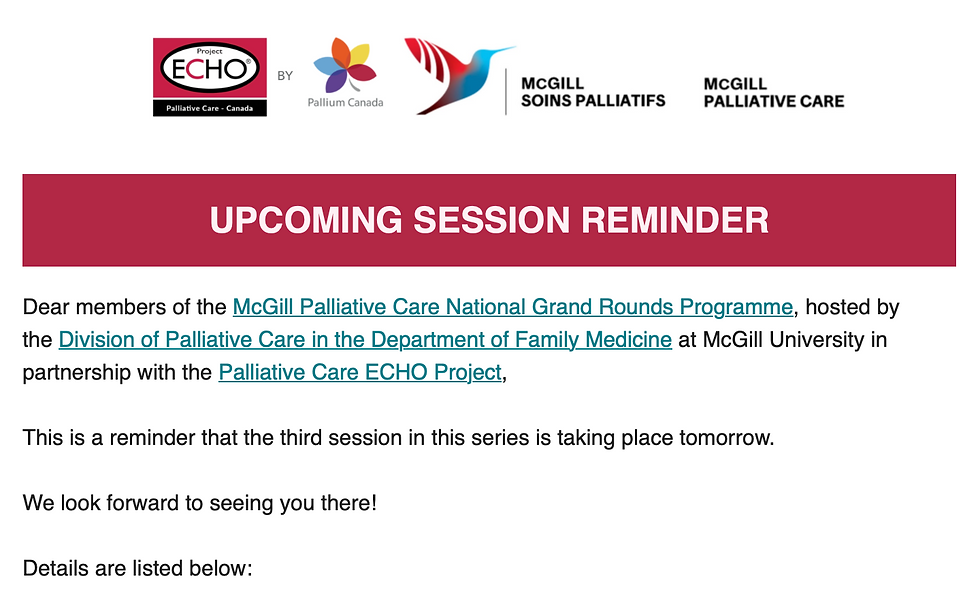Cassandra Jones Presented at Uncommon Senses V
- Brigitte Durieux
- May 16, 2025
- 4 min read
“The overarching aim of the conference is to show how sensory studies offers unique and valuable perspectives that cut across traditional disciplinary boundaries, enriching our understanding of how we perceive, interpret, and respond to these challenges. We are as interested in investigating how differing disciplinary perspectives complement one another (multidisciplinary research) as in how they coalesce (interdisciplinary research), but “cross-disciplinary research” is the term we prefer – “crossing” in the sense of confronting, as well as conjoining. This conference seeks to advance the ever-expanding field of sensory studies, and its rich contribution to framing and generating creative solutions to today’s challenges. We invite proposals that speak to any of the following breaking areas of research.”
Cassandra Jones (Ph.D. candidate under the supervision of Dr. Justin Sanders and Dr. Claudia Mitchell) presented an individual paper, Sensing Care: Poetic and Multisensory Approaches to Healthcare Environmentson the panel entitled, “The Senses in Illness and Health”. This conference presentation met Uncommon Senses’ callout for approaching breaking areas of research in “Medicine (including Complementary and Alternative Medicine) and the senses: Exploring the role of sensory experiences in illness, healing and the pursuit of well-being”.

Abstract
This presentation offers a poetic and theoretical inquiry into the sensorial and affective dimensions of hospital care environments. Rooted in a phenomenological framework, the research began during my time as a palliative care volunteer, where I crossed countless thresholds—each room filled with its own atmosphere, textures, and emotional weight. These embodied encounters—chills, smells, cries, silences—moved through me. At night, haunted by the day’s intensity, I turned to poetry to process, to hold, and to release what could not be said otherwise. Poetry became a “poetic container” (Pithouse-Morgan, 2021), capturing corporeal affect (Spinoza, 1985; Duff, 2009) and transforming it into shared understanding.
My work argues for poetic inquiry not only as an arts-based method, but as a sensorial one—a medium to process, reflect, and ethically engage with multisensory care environments. This approach extends into an autoethnographic poem, Cruel Optimism, composed after participating in a hospital VR program. In this context, I explore poetry as a sensorial method and extend this inquiry to virtual reality (VR) in palliative and oncology wards. A hospital VR program framed immersive experiences as therapeutic—offering simulated returns to meaningful places. Yet, drawing on Ahmed’s (2010) theory of “happy objects” and Berlant’s (2011) concept of “cruel optimism,” I question this promise. VR, positioned as a source of joy, may inadvertently reinforce loss—reminding patients of what is now unreachable, inducing solitude rather than comfort.
In one poignant case, a patient’s momentary excitement turned into existential grief. The virtual became a cruel optimism—an image of freedom that underscored their confinement. As hospitals increasingly adopt VR, we must ask: are we humanizing sensory environments or using technology to bypass them? Two paradigms underscore the contemporary hospital the science and technology model and the humanist model, it is important to consider how these ideologies support and conflict with each other, when investing in the materialism of care and understandings of the virtual environment versus the built environment and sensory care therapies. We must consider whether virtual reality is being used to genuinely enhance the sensory experience of the physical environment—complementing efforts to humanize care and invest in people—or whether it merely compensates for shortcomings in services and the multisensory needs that patients and caregivers deeply desire. Poetry, like VR, can open doors—but also reveals what lies behind them. It invites us to reimagine care not as escape, but as embodied presence.
Bio:
I am currently engaged in sensory ethnographic fieldwork using my senses and body as a sensate researcher (Edvardsson & Street, 2007) as well as exploring participants relationship to the sensory environment and design (i.e., through lighting, visuals, sounds, touch, built and natural environments…), sensory-based therapies offered or not offered (such as, palliative massage, art therapy, music therapy…), and the relational environment in the context of palliative care at the MUHC hospital in Montreal (primary fieldsite) and Bruyère in Ottawa (upcoming comparative site). In using the sensory ethnographic methods of sensory interviews, and the phenomenological and participatory method of walking with video, as per sensory ethnographer, Sarah Pink (Pink, 2007; 2015) both the researcher and participant are co-researching to represent the multisensorial perspectives and environment of participants (in my case healthcare professionals, patients, informal caregivers and therapeutic practitioners) experientially as we move through spaces in conversation on film capturing the sensorially lived experiences and realities of serious illness.
I studied at the University of Oxford, where I did a MSc in Medical Anthropology. My thesis was on western approaches to death and dying focusing on biomedicine, biotech industry, and grassroots movements, specifically end-of-life doulas. As a research-practitioner, I am informed by my sensorial and embodied trainings when I did what I called a “year of alternative school” during the pandemic I received certifications in: Contemplative End of Life Care (Traditional Institute for Medicine, 6-months) becoming an end-of-life doula, and sensory care trainings in palliative, chronic illness, and wheelchair massage, I trained in the contemplative sciences (Compassion-based Resilience Teacher, 6 months) to deliver meditation and mindfulness trainings, as well as underwent my yoga teacher training (Hatha Flow, RYT-200 and now End of Life Yoga (expected 2025 with ABODE hospice)). During the pandemic, I gained experience as a palliative volunteer with Hope & Cope at the Jewish General Hospital (until volunteering program was suspended) enabling me to better understand the lifeworld’s of patients and caregivers.



Comments